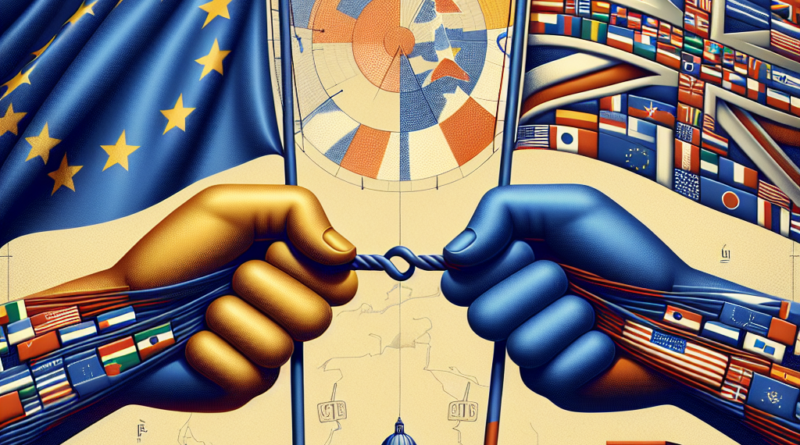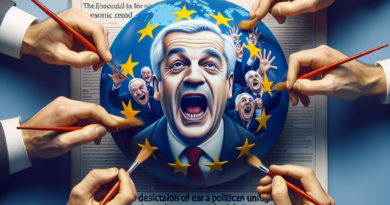EU Elections: Brussels and National Policies Clash in a Fiery Showdown
Challenges and Opportunities in European Politics
In Europe, the electoral growth of the so-called sovereignist parties has continued, apparently unstoppable.
This trend, however, does not seem to threaten the “Ursula majority,” which in the past legislature saw the formation of a bloc between the People’s Party and the Left and Democracy, with added strategic votes from parties like Fratelli d’Italia and Rassemblement National topping the polls in their respective countries.
In Germany, the AfD came in second, overtaking the social democratic party of Chancellor Scholz.
The Democratic Deficit in the European Union
The institutional architecture of the European Union has been called into question, with exclusive legislative initiative powers granted to the Commission.
This setup renders the Parliament a body that can only amend texts sent to it, subject to the Commission’s approval.
The decision-making role attributed to the Union’s Council of Ministers does little to restore a satisfactory dialogue, as opposition forces remain excluded.
The Shift in European Elections
Recent European Parliament elections have marked a significant turning point for the Union’s future and the political landscape of member states.
They have highlighted a close and sometimes dramatic interaction between unresolved European issues and crucial national dynamics.
The Growing Conflict Between National and European Levels
A growing conflict emerges between the European and national levels, with decisions increasingly taken at the European level, bypassing democratic scrutiny.
This conflict is exacerbated by widespread voter abstention, reflecting a lack of trust in European institutions seen as distant and unresponsive.
The Fragility of European Politics
The decision of the German CDU to limit the “Ursula majority,” excluding right-wing parties, has implications for the European political landscape.
It may simplify the unity of sovereignist parties, except for AfD due to some members’ neo-Nazi sympathies, creating a strong opposition front.
The Ursula majority, facing challenges from both left and right, will have a tough road ahead.
In conclusion, European policies are set to face daily scrutiny and opposition at both national and regional levels, sparking continuous friction and potential crises between European and national actors.




